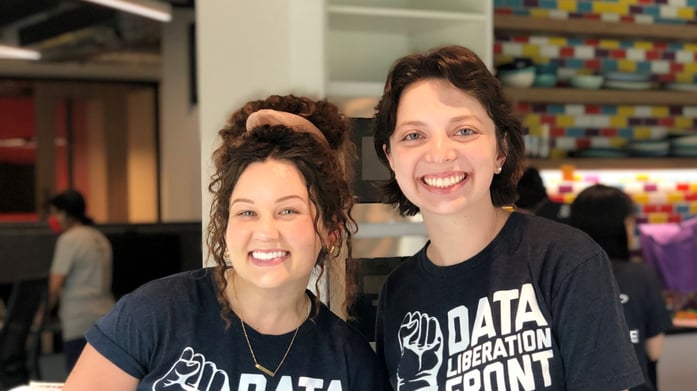
Cognite partners with Girlstart to inspire more girls to study science, technology, engineering, and math.
Cognite has a strong history of community engagement; supporting a wide-range of causes including Breast Cancer Awareness, Movember, and STEM opportunities for women and minority students.
As a continuation of this tradition, we are excited to announce our new partnership with Girlstart, a US-based nonprofit that empowers girls in science, technology, engineering, and math.
Championed by our own Marissa Pang, we are raising funds for the organization’s STEM summer camp, getting hands-on building kits for their remote events, and offering insights and encouragement through mentor sessions with grade-school students.
Marissa, a data engineer at Cognite, is spearheading the Cognite and Girlstart partnership because she, like many women, has experienced the challenges of working in a male-dominated career field and believes in the importance of the Girlstart mission.
To pave a brighter path for future generations, we must create opportunities for girls when they’re young and, just as importantly, we must make changes in our workplaces now.
Marissa especially appreciates that Girlstart works hard to prioritize support for girls who are in communities that are underserved. She wishes she had someone to ask questions to growing up and looks forward to serving as a Girlstart mentor in the future.
As a part of Cognite’s commitment to giving back, Cognite offers team members paid time off to volunteer and is currently running a fundraising campaign for the nonprofit.
If you would like to make a donation to Girlstart, Cognite is running a $2,500 match through May 30, 2021 here.
Read more below about Marissa’s role at Cognite and why she values Cognite’s commitment to supporting women in STEM below. And read more about Marissa’s experiences, career, and the wisdom she wants to share with girls interested in STEM on Girlstart’s Women in STEM blog.
Why is confidence in STEM important for girls?
STEM has always been dominated by men. And so, the way STEM is taught is biased towards them, data is biased towards them, opportunities are biased towards them. In general, everything in STEM is biased towards men. Because of this, it’s easy for young girls to feel like they aren’t capable. But we all know girls are smart, strong, and more than capable. The odds are only against girls because of bias, whether it’s intentional or not. As more girls get involved in STEM, that bias will disappear and it will get easier for women to thrive in STEM careers. Having confidence in yourself and your abilities is key.. If one can stay confident in themselves, they can prove to anyone just how amazing they are.And if you do butt up against that bias, having confidence is so important in helping girls know that they don’t deserve that. Never settle for anything less than you deserve.
Can you describe your role within Cognite?
I help industrial customers use their data to become more sustainable. Data has always been important, but we’re seeing more and more emphasis on it’s power to enact real change. A lot of companies are trying to figure out how to make their data accessible in a scalable way. Cognite e helps by providing software solutions that make industrial data accessible and more actionable so it can be used to its full potential. Whether that means creating dashboards or AI models that help with decision making, or ways to easily monitor sensors and equipment, or ways they can view all their data on their phone no matter where they are. I love helping customers solve seemingly small problems that can make a big difference.
What are some of your favorite responsibilities as a data engineer with Cognite?
I love building solutions that help people do something more efficiently. It’s an exercise in creative problem solving and I enjoy the process of building these solutions, but I also like that it helps make someone’s job easier.PAnd every build is a new challenge: I get to learn new skills, new approaches, etc. I also like connecting with our customers; getting to really understand how they use things, how their job works, and how they think. Ensuring everyone’s perspective is a part of the project adds diversity to the solution and helps make it stronger.